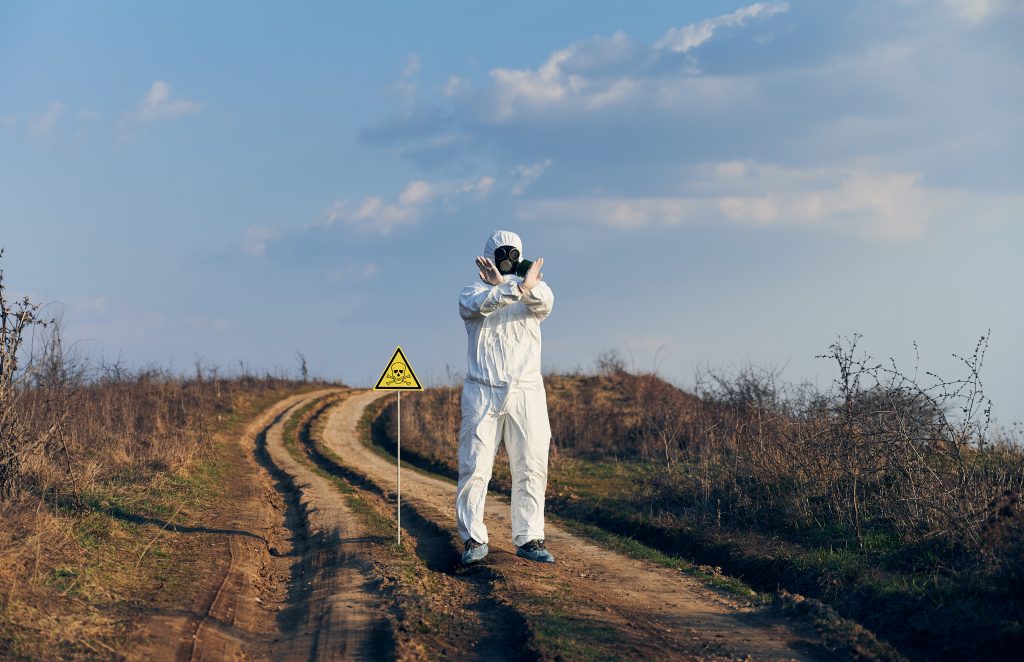Are you aware of the escalating tensions between Russia and the West? Russian officials have issued a warning about the risk of nuclear warfare. This article explores the motivations behind the warning and its implications for global security. Despite existing arms control agreements, Russia’s recent actions, including suspending participation in the New START treaty and deploying new strategic nuclear weapons, have raised concerns. With the conflict in Ukraine and Russia’s accusations against the West, the situation is becoming increasingly complex. The world is now grappling with the potential consequences and the need for diplomatic solutions.
Putin’s Accusations and Nuclear Arsenal
You should consider the implications of Putin’s accusations and the state of Russia’s nuclear arsenal. Putin’s warning to the West and his assertions about the impossibility of defeating Russia on the battlefield have raised concerns about a global confrontation. In response to these perceived threats, Russia has suspended participation in the New START nuclear arms treaty and put new strategic nuclear weapons on combat duty. Putin has even threatened to resume nuclear tests.
The Ukraine conflict serves as a justification for Putin’s actions. He claims that the conflict was forced on Russia due to NATO’s eastward expansion since the Cold War. However, Western leaders reject this narrative and view it as an unfounded pretext for a land grab. Despite suffering battlefield reverses, Russian forces still control around a fifth of Ukraine.
The international community has expressed concern over the potential escalation of a global confrontation. The United States has called Putin’s moves deeply unfortunate and irresponsible, while NATO believes it makes the world a more dangerous place. The focus now is on preventing further escalation and finding a peaceful solution.
The conflict between Russia and Ukraine has significant implications for global security. The possibility of a nuclear escalation raises concerns about the use of weapons of mass destruction. Tensions between Russia and the West have strained diplomatic relations and cooperation. It is crucial for the international community to work together in order to prevent further escalation and uphold arms control agreements.
Ukraine Conflict and Justification
Putin’s justification for the conflict in Ukraine is based on his claims that it was forced on Russia due to NATO’s eastward expansion since the Cold War. This has led to a series of events that have had significant implications for regional security and have resulted in a humanitarian crisis. The following are key points to consider:
- Russian aggression: Putin argues that Russia was compelled to intervene in Ukraine to protect the interests of ethnic Russians and Russian-speaking populations in the region. This has been met with strong skepticism from Western leaders who view it as a pretext for territorial expansion.
- NATO’s response: In response to Russia’s actions, NATO has strengthened its military presence in Eastern Europe and provided support to Ukraine. This has further escalated tensions between Russia and the West, exacerbating the conflict.
- Diplomatic negotiations: Efforts to resolve the conflict through diplomatic means have been ongoing, with multiple ceasefire agreements and peace talks taking place. However, these efforts have been largely unsuccessful in achieving a lasting resolution.
The conflict in Ukraine continues to pose a significant threat to regional security and has resulted in a humanitarian crisis, with thousands of people killed and millions displaced. It is crucial for the international community to find a peaceful solution and prevent further escalation of the conflict.
Global Concerns and Confrontation
Global concerns and confrontation over the risk of nuclear war have intensified due to recent actions and rhetoric from Russian officials. The formation of a Russia-China alliance has raised alarm bells, especially in light of the ongoing tensions between the United States and China over nuclear issues. The potential for a nuclear arms race between these major powers has heightened fears of a catastrophic conflict.
Efforts to promote nuclear non-proliferation have been undermined by these developments, as regional security concerns grow. The possibility of an escalation in nuclear tensions between the United States and China has further exacerbated the situation. It is imperative for diplomatic solutions to be pursued to prevent the outbreak of a nuclear conflict.
The international community has expressed deep concern about the implications of a potential nuclear war. The destabilizing effects on global security cannot be understated. The need for dialogue and collaboration between nations is crucial to prevent further escalation and find peaceful resolutions to nuclear conflicts.
International Reactions and Implications
The international community’s response to the risk of nuclear war has been marked by deep concern and a sense of urgency. The consequences of such a catastrophic event are unimaginable, which is why diplomatic efforts are being made to prevent further escalation. The following list illustrates the key concerns and implications that have emerged from this crisis:
- Concerns and Consequences:
- The potential loss of millions of lives and the devastation of entire regions.
- The long-term environmental and health impacts of nuclear radiation.
- The destabilization of global security and the erosion of trust among nations.
- Diplomatic Efforts:
- Intensive negotiations and dialogues between affected parties to find peaceful resolutions.
- International mediation and diplomatic interventions to de-escalate tensions.
- The promotion of dialogue and cooperation to address underlying issues and grievances.
- Regional Stability:
- The threat posed to neighboring countries and the risk of regional conflicts.
- The potential for a domino effect, with other nations seeking to acquire nuclear weapons.
- The importance of maintaining a balance of power and deterring aggression through diplomacy and strategic alliances.
Nuclear non-proliferation, accountability, and compensation are key factors that need to be addressed to prevent the use of nuclear weapons and ensure a peaceful resolution. The international community must remain united in their efforts to prevent further escalation and seek diplomatic solutions that prioritize regional stability and the safety of all nations.
US Nuclear Deployment in South Korea
How does the US nuclear deployment in South Korea impact regional stability and deterrence efforts? The US nuclear deployment in South Korea has potential implications for regional stability and raises concerns about the effectiveness of diplomatic efforts in the region. By deploying nuclear-armed submarines to South Korea, the US is sending a clear message to North Korea about its commitment to the defense of its allies. This move is intended to deter North Korea from engaging in any aggressive behavior and to ensure the security of South Korea. However, this deployment also increases the risk of escalation and raises questions about the human cost and accountability of such actions.
| Potential Implications |
|---|
| Increased regional tensions |
| Heightened risk of nuclear conflict |
| Potential for unintended consequences |
The presence of US nuclear weapons in South Korea may contribute to regional stability by acting as a deterrent against North Korean aggression. However, it also carries the risk of escalating tensions and increasing the likelihood of a nuclear conflict. Diplomatic efforts to address the North Korean nuclear issue may be undermined by the deployment of US nuclear weapons, as it may be seen as a provocative action by North Korea. Additionally, the deployment raises concerns about the human cost of a potential conflict and the accountability of the parties involved. It is crucial for all stakeholders to engage in dialogue and find peaceful solutions to ensure long-term regional stability.
North Korea’s Display of Nuclear Weapons
In the article titled ‘Russian Official Warning On Risk Of Use Of Nuclear War’, let’s now turn our attention to North Korea’s display of nuclear weapons. The situation regarding North Korea’s nuclear capabilities is a cause for concern and has significant security implications. Here are three key points to consider:
- Regional response: North Korea’s display of nuclear weapons has sparked regional tensions and heightened concerns among neighboring countries. The threat of a nuclear-armed North Korea has prompted responses from countries such as South Korea, Japan, and the United States, who have strengthened their defense capabilities and conducted joint military exercises.
- Diplomatic efforts: Efforts to address North Korea’s nuclear program through diplomatic means have been ongoing. International negotiations, such as the Six-Party Talks involving North Korea, South Korea, China, Japan, Russia, and the United States, have aimed to find a peaceful resolution and denuclearization of the Korean Peninsula.
- Security implications and global stability: The possession of nuclear weapons by North Korea poses a significant threat to regional and global security. It undermines non-proliferation efforts and increases the risk of nuclear conflict. The international community must continue to prioritize stability and work towards finding a diplomatic solution to address North Korea’s nuclear ambitions.
It is crucial to address the security challenges posed by North Korea’s nuclear weapons and actively engage in diplomatic efforts to maintain global stability and strengthen non-proliferation efforts.
Russian Control of Ukrainian Nuclear Plant
Amidst the ongoing conflict in Ukraine, concerns arise over Russian control of the Ukrainian nuclear plant. The safety and security of Ukraine’s nuclear facilities are now at risk, posing potential dangers to the region and beyond. The Ukrainian nuclear plant plays a crucial role in the country’s energy infrastructure, providing a significant portion of its electricity. With Russian occupiers exerting control over the plant, there are legitimate concerns about the maintenance and operation of the facility, as well as the potential for accidents or sabotage.
The international response to Russian occupation of the Ukrainian nuclear plant has been one of alarm and condemnation. Countries around the world recognize the non-proliferation implications of this situation, as it raises questions about the integrity of nuclear facilities and the potential for unauthorized access to nuclear materials. Moreover, the regional stability of Eastern Europe is at stake, as any mishap or deliberate act at the nuclear plant could escalate tensions and lead to further conflict.
Efforts must be made to address these safety concerns and ensure the proper functioning of the Ukrainian nuclear plant. The international community should work together to monitor the situation closely and provide support to Ukraine in safeguarding its nuclear facilities. This includes technical assistance, intelligence sharing, and diplomatic pressure on Russia to respect international norms and obligations. The potential consequences of a breach in nuclear security are too grave to ignore, and immediate action is necessary to prevent any further escalation and protect the stability of the region.





